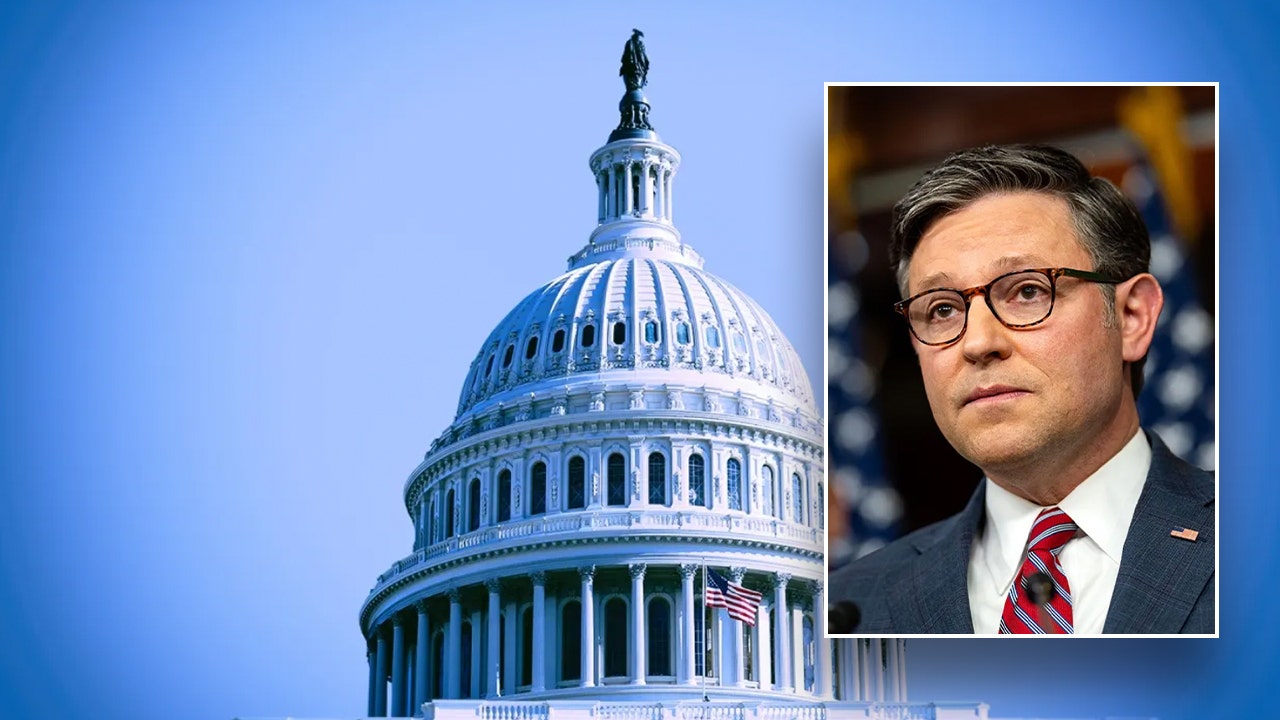Denver, CO
City strikes nearly $89 million deal to buy former Denver Post building at Civic Center

The city of Denver, no longer content to be a tenant in the former Denver Post building downtown, is moving to buy the 11-story structure for $88.5 million.
Its purchase deal with the New York-based owner of 101 W. Colfax Ave. is intended to make room for the city and county’s courts. Many of the non-criminal courts are squeezed into the historic City and County Building across Civic Center Park. They’re expected to need another 280,000 square feet of space by 2040, according to a courts master plan.
The building is just shy of 306,000 square feet and is located in the heart of downtown, with building security, an auditorium, connections to the city’s computer network and a 635-space parking garage. The Post reported earlier this week that city officials were considering purchasing the building.
The proposed contract is up for consideration before the City Council’s Finance and Governance Committee on Tuesday morning. If it earns approval from the entire council in coming weeks, the deal could close in March, according to city documents.
“The Post building would help the city meet space requirements for district, county, probate and juvenile courts as well as provide dedicated space for non-profit and judicial advocate services, like Colorado Legal Services and multiple rental assistance programs, which currently have undedicated space in other city buildings,” Laura Swartz, a spokeswoman for Denver’s finance department, said Thursday.
In addition to courtrooms in the City and County Building less than two blocks from the building it plans to buy, Denver has court uses in the Minoru Yasui Building, the Lindsey Flanigan Courthouse and the Van Cise-Simonet Detention Center today, Swartz said. All of those buildings are clustered along West Colfax Avenue, between Bannock and Fox streets.
The building opened in 2006 as the joint headquarters of The Post and the Rocky Mountain News, which went on to close down in 2009. The Post’s newsroom and other operations moved out of the building in 2018, into space at the paper’s printing plant in Adams County. But The Post’s ownership group still holds a master lease for the building and subleases that space to other tenants, including the city.
The building is owned by Kayan LLC, an affiliated created by American Properties, which paid $93.4 million for it in 2006, as construction was concluding. That price was higher than the city proposes to pay now, especially when adjusted for inflation.
The difference likely reflects, in part, the impact of high vacancy rates in downtown office buildings after the pandemic changed commuting and remote-work habits. A presentation prepared by the city for the council committee hearing says the negotiated price “falls within the appraisal value.”
The city’s contract will come before the council just as work is ramping up on a two-year, $133.5 million renovation of the Wellington E. Webb Municipal Office Building at 201. W. Coflax, across the street from The Post’s old building
That building is already home base to 2,100 city employees. The renovation has been touted as a way to maximize space in that building and make room for 600 city workers now using subleased floors in The Post building.
Its proximity to other city buildings makes the former Post building an even more attractive opportunity for a city seeking to grow its real estate footprint to meet future needs.
“The Post building’s proximity to existing downtown courthouses makes this a preferred location,” Swartz said. The building also already houses city staff and has the city’s IT infrastructure installed.”
The city began subleasing space from The Post’s owner in 2016, and it has expanded since then to include more floors. The city’s cumulative sublease deal is worth just shy of $44 million through 2029.
Late that year is when The Post ownership’s master lease will expire, according to the council hearing presentation. Until then, city documents say, the building’s leasing structure will help pay off debt the city is taking to finance the purchase.
The city plans to issue certificates of participation, a form of borrowing that pledges city assets and isn’t subject to voter approval, unlike municipal bonds. As the city takes over as landlord, it plans to continue charging rent to The Post’s ownership, amounting to $7.8 million in the first year. That money will come from parking revenue and sublease payments made by tenants — including the city.
After 2029, the city will take over all leasing functions, according to the documents.
Stay up-to-date with Colorado Politics by signing up for our weekly newsletter, The Spot.

Denver, CO
No criminal charges will be filed in Colorado election passwords leak, Denver DA says

The Denver District Attorney’s Office will not file criminal charges related to the inadvertent release of some voting system passwords by the Colorado Secretary of State’s Office, prosecutors announced Friday.
In a statement, District Attorney Beth McCann said the release of the passwords, which were posted on the secretary of state’s website for several months starting in June, was not “an effort to influence the outcome of an election.” Instead, she wrote, the passwords release was an error that didn’t constitute a violation of law.
A law firm hired by Secretary of State Jena Griswold’s office previously determined that the passwords’ release was inadvertent, though the review found that the office violated information security policies.
The passwords were included in a hidden tab on a larger spreadsheet by a staffer who left Griswold’s office in May 2023, the firm’s review found. Current staff members were not aware of the hidden tab when they published the spreadsheet online a year later.
In a separate statement Friday, Griswold’s office reiterated McCann’s findings and said that it had cooperated with the Denver investigation. Spokesman Jack Todd declined to comment further.
McCann’s office opened the investigation in November, shortly after the Colorado Republican Party announced in late October the discovery of the spreadsheet containing hidden passwords, which could be publicly downloaded.
There has been no evidence indicating the passwords were used to alter or interfere with election results, nor has any evidence suggested that elections systems were compromised. Anyone seeking to do so would’ve needed another set of passwords as well as physical access to controlled, camera-monitored areas in county clerks’ offices.
According to a 26-page report issued by McCann’s office, investigators spoke with several current and former state employees and also reviewed employees’ laptops and email accounts.
In an Oct. 24 email exchange among secretary of state staff — sent the day the office became aware that the passwords were publicly available — staffers sought to take down the spreadsheet. After being told about the issue, one employee whose name is redacted from the report replied: “Jesus.”
Investigators also received numerous “sworn affidavits” from people and groups seeking an investigation into the situation. None of those affidavits included new information or evidence that a crime had been committed, according to the report, and none came from within Denver.
The district attorney’s office in El Paso County has said it received two affidavits alleging state law violations, and the agency said it would cooperate with Denver prosecutors and review the Denver investigation. A spokeswoman for that office did not return messages seeking comment Friday.
Stay up-to-date with Colorado Politics by signing up for our weekly newsletter, The Spot.
Originally Published:
Denver, CO
Laws Whiskey House opens two-story bar and lounge in Denver

Laws Whiskey House this weekend will unveil the pièce de résistance of the two-story addition to its Denver distillery: A sprawling upstairs bar and lounge with a twilight view of the mountains.
Distillery co-founder Al Laws spent seven years overseeing the construction of the 4,000-square-foot Whiskey Sanctuary, located at 80 W. Arkansas Ave. between South Broadway and the light-rail line. The upstairs lounge is the last section to open in the new space, which includes a tour room, a small bar and sectionals downstairs.
A spiral staircase with tall white balusters leads to the new floor. (There is also an elevator.) Upstairs, the bar wraps around in a sleek oval with plenty of seating, while larger parties can settle down in the mid-century style sofas and chairs.
The tasting room serves ten signature cocktails using Laws liquors, such as a whiskey sour ($12) made with its Four Grain Bourbon. The bar incorporates the house-made Blanco agave spirit into the Siesta ($13), along with Campari, lime, grapefruit and organic agave nectar. There is also the Jungle Bird ($14), a boozy cocktail made with Aperol, pineapple, lime and an 85-proof rum named after Laws’ wife and distillery co-founder, Marianne.
Cocktail glasses sparkled in the dimly lit space during a soft opening last week. The sun had long set. Bordered by the floor-to-ceiling windows of the lounge, the backlit mountains dissolved into the night. Peyton Mason, the CFO of Laws, called it “the best seat in the house.”
A Laws packaging facility is visible from the lounge’s overlook. The company, which initially hoped to open the Whiskey Sanctuary by August or September, recently cut hours for two of its packaging employees due to the changing tides of the industry, Mason said. Laws employs fewer than 40 people, he said.
Flights and single pours are also available upstairs. Bar snacks include chorizo ($6) and veggie ($5) cones, almonds and olives ($5) and tinned fish at market price.
The ground floor opened a couple of months ago for distillery tours starting at $20 a person. Participants enter a room meant to resemble a chapel (Laws himself hand-carved the pews), walk into the distillery and exit through a small bar where they can order pours of bourbon and rye whiskey varieties.
Subscribe to our new food newsletter, Stuffed, to get Denver food and drink news sent straight to your inbox.
Denver, CO
LA Chargers rally past Denver Broncos with first fair-catch kick since 1976

Trailing 21-13 at halftime Thursday night against the Denver Broncos, some wondered if the Los Angeles Chargers had any resolve left after going through their worst four-quarter stretch of the season.
The Chargers put some doubts to rest getting back on track and getting closer to wrapping up a playoff spot.
Justin Herbert passed for 284 yards and two touchdowns, including a go-ahead 19-yarder to Derius Davis early in the fourth quarter, as the Chargers rallied for a 34-27 victory.
Los Angeles (9-6) have a 97% probability of making the playoffs with the win according to the NFL. They can wrap up their second postseason berth in three seasons Sunday with losses by Indianapolis and Miami.
“It was a total team effort by everyone. It was phenomenal,” coach Jim Harbaugh said. “The test and challenge is how you are going to respond. They went back to work and stayed the course.”
The Chargers’ comeback also included Cameron Dicker making the first successful fair-catch kick in the NFL in 48 years. He was good from 57 yards on the final play of the first half to pull the Chargers to 21-13.
Denver (9-6) could have clinched a playoff spot but had their four-game winning streak snapped. The Broncos still have an 85% chance of making it, but they have tough remaining tests at Cincinnati on 28 December and at home against Kansas City in Week 18.
“Obviously, a disappointing loss. There was a lot at stake, and we know that,” Denver coach Sean Payton said. “We had a fast start, and then uncharacteristically this season, we didn’t finish or play nearly well enough in the second half, both offensively and defensively.”
The Broncos appeared well on their way to wrapping up their first postseason berth since 2015 after they scored on their first three drives to go up 21-10. But after Wil Lutz’s 41-yard field goal midway through the third quarter gave the Broncos a 24-13 advantage, the Chargers stormed back.
“First three drives, 21 points, and then just kind of stalled,” said Bo Nix, who completed 29 of 40 passes for 263 yards and two touchdowns. “We got the same defense (in the second half). Just for whatever reason, we couldn’t get going.”
Gus Edwards – who had 14 carries for 68 yards – went off five yards off left end for his second touchdown of the game to get the Bolts within 24-19, but the two-point conversion was no good when Herbert was stopped short of the goal line.
Edwards also burrowed in from the 1 in the first quarter to tie it at 7.
After Denver went three-and-out for the second time in three possessions, the Chargers took their first lead. On first-and-10 from the Denver 19, Herbert – who completed 23 of 30 passes with an interception – scrambled left and threw across his body off his left foot to Davis with 12:29 remaining.
“We had him on a little bubble out of the backfield. I scrambled out, saw the pressure and he just turned upfield and made an incredible play,” Herbert said.
Herbert then found Joshua Palmer in the back of the end zone for the 2-point conversion. Palmer made a one-handed grab before going out of bounds to make it 27-24.
Los Angeles put it out of reach with 2:27 remaining on Herbert’s 34-yard touchdown pass to Hassan Haskins.
Lutz narrowly made a 55-yard field goal with 57 seconds remaining to get Denver within a touchdown, but Los Angeles’ Nick Niemann recovered the onside kick to dash any hopes of a comeback.
Herbert completed passes to 10 players, including Ladd McConkey, who had six receptions for 87 yards.
Nix had a pair of touchdown passes in the first half – a one-yard pass to Michael Burton off a rollout and a six-yard throw to Devaughn Vele in the left corner of the end zone – and completed 15 of 21 passes for 155 yards before halftime.
Audric Estime’s three-yard run off right guard gave the Broncos a 7-0 lead midway through the first quarter. It was only the third time this season Denver reached the end zone on their opening possession.
The Chargers were outscored 48-13 in four quarters that included the second half against Tampa Bay and first half against Denver.
Going into halftime, the defense had a stretch where it had allowed scores on 13 of 18 drives (including eight touchdowns) and forced only two punts in seven quarters.
Instead of Harbaugh addressing the team at halftime, it was safety Derwin James.
“I feel like, as players, we need to take it upon ourselves. This is our team too,” James said. “And I feel like, man, my message was simple. Man, it’s time for us to play ball. And I feel like, as a team, we just came out and did that. It was nothing rah, rah, rah. It was just, it’s time to go, man. It’s time for us to play our best ball in December, January. I feel like we did that today.”
Denver gained 212 yards on their first drive and 229 in the first half, but just 107 after halftime.
Coach Jim Harbaugh and the Chargers took advantage of a seldom-used fair-catch kick, which allows a team that has just made a fair catch to try a free kick for three points. The kick is attempted from the line of scrimmage, and the defending team must stand 10 yards away.
The Chargers were able to try it because Denver’s Tremon Smith committed fair-catch interference on what would have been the final play of the first half when Los Angeles’ Derius Davis attempted to field Riley Dixon’s punt at the Chargers 38.
The penalty moved the ball to the Denver 47 for an untimed down. The Chargers also were the last team to successfully execute a free kick when Ray Wersching converted from 45 yards for San Diego on 21 November 1976, against Buffalo.
-

 Politics1 week ago
Politics1 week agoCanadian premier threatens to cut off energy imports to US if Trump imposes tariff on country
-
/cdn.vox-cdn.com/uploads/chorus_asset/file/25782636/247422_ChatGPT_anniversary_CVirginia.jpg)
/cdn.vox-cdn.com/uploads/chorus_asset/file/25782636/247422_ChatGPT_anniversary_CVirginia.jpg) Technology1 week ago
Technology1 week agoInside the launch — and future — of ChatGPT
-
/cdn.vox-cdn.com/uploads/chorus_asset/file/25789444/1258459915.jpg)
/cdn.vox-cdn.com/uploads/chorus_asset/file/25789444/1258459915.jpg) Technology7 days ago
Technology7 days agoOpenAI cofounder Ilya Sutskever says the way AI is built is about to change
-

 Politics7 days ago
Politics7 days agoU.S. Supreme Court will decide if oil industry may sue to block California's zero-emissions goal
-
/cdn.vox-cdn.com/uploads/chorus_asset/file/25546252/STK169_Mark_Zuckerburg_CVIRGINIA_D.jpg)
/cdn.vox-cdn.com/uploads/chorus_asset/file/25546252/STK169_Mark_Zuckerburg_CVIRGINIA_D.jpg) Technology1 week ago
Technology1 week agoMeta asks the US government to block OpenAI’s switch to a for-profit
-

 Politics1 week ago
Politics1 week agoConservative group debuts major ad buy in key senators' states as 'soft appeal' for Hegseth, Gabbard, Patel
-

 Business5 days ago
Business5 days agoFreddie Freeman's World Series walk-off grand slam baseball sells at auction for $1.56 million
-
/cdn.vox-cdn.com/uploads/chorus_asset/file/23951353/STK043_VRG_Illo_N_Barclay_3_Meta.jpg)
/cdn.vox-cdn.com/uploads/chorus_asset/file/23951353/STK043_VRG_Illo_N_Barclay_3_Meta.jpg) Technology5 days ago
Technology5 days agoMeta’s Instagram boss: who posted something matters more in the AI age

















